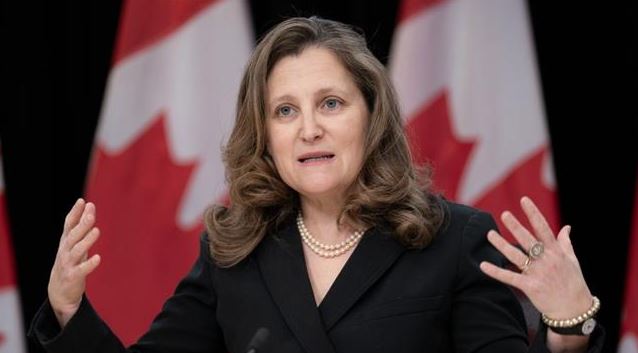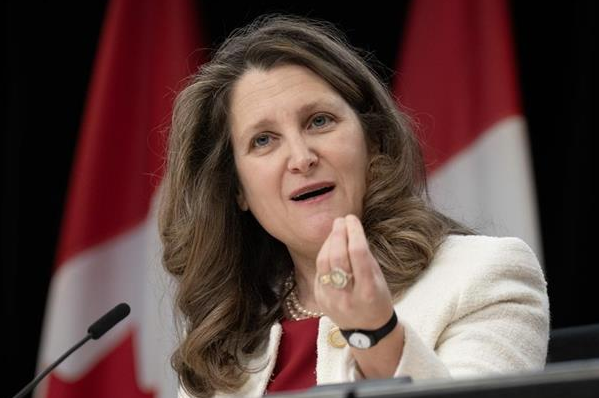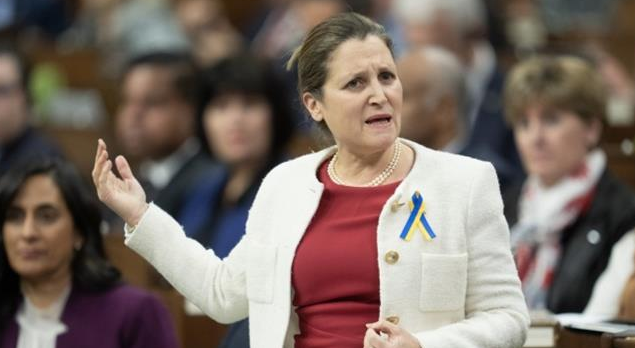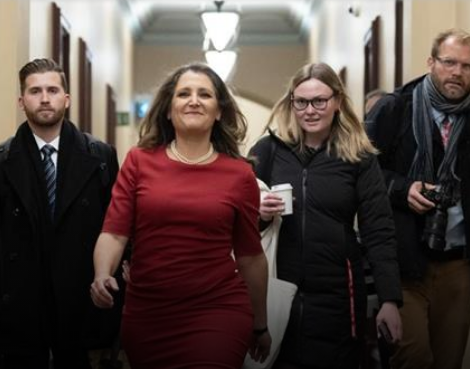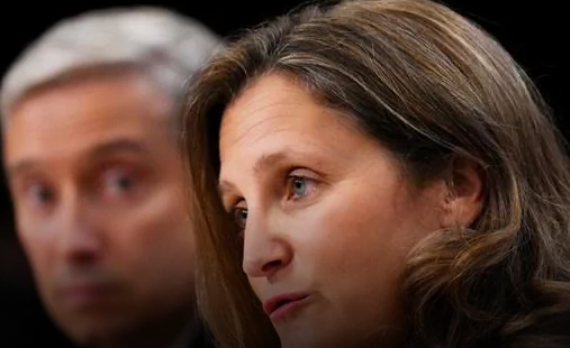No Alcohol Excise Tax Increase In Next Two Years: Freeland
Canada Global(Web News)Finance Minister Chrystia Freeland has announced that the federal government…
Beer Tax Increases Are Limited To 2 Percent Through 2026, Freeland Said
Canada Global(Web News)Finance Minister Chrystia Freeland says that the federal government will…
Government To Provide $199 Million To Help Low-Income Tenants And Shelters, Finance Minister
Canada Global(Web News)Finance Minister Chrystia Freeland has announced $200 million to help…
Foreign Nationals Will Not Be Able To Buy Residential Property In Canada By 2027, Chrystia Freeland
Canada Global(Web News) The ban on foreign nationals and companies buying residential property…
Ottawa To Extend Ban On Foreigners Buying Homes For Two More Years, Freeland
Canada Global(Web News)Finance Minister Chrystia Freeland announced on Sunday that the federal…
Building Canada Is Our Primary Goal: Finance Minister Freeland
Canada Global(Web News)The fall economic statement presented by the Liberal government acknowledged…
Freeland To Legislate Changes To Short-Term Rental Market
Canada Global(Web News)Deputy Prime Minister and Minister of Finance Chrystia Freeland says…

